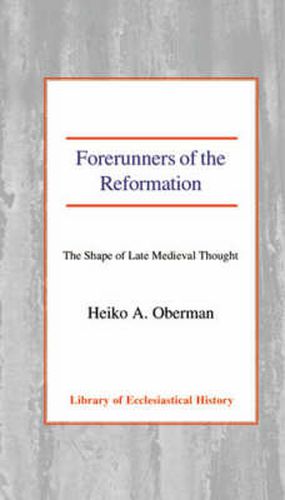Readings Newsletter
Become a Readings Member to make your shopping experience even easier.
Sign in or sign up for free!
You’re not far away from qualifying for FREE standard shipping within Australia
You’ve qualified for FREE standard shipping within Australia
The cart is loading…






Oberman’s magisterial work transfers discussion of late medieval Christian thought from the private studies of the specialist to more general use and understanding, and explains the significance of the ideas of the time. Although this ‘Late Medieval Reader’ does not exhaust the riches of the period between the High Middle Ages and the Reformation era, it introduces the reader to aspects of such major themes as conciliarism, curialism, mysticism, scholasticism, the spirituality of the Devotio Moderna, and the impact of Renaissance humanism. The theme of the Forerunners has grown out of the consideration that the justified rejection of a confessional reading of the past has been succeeded by an equally unhistorical disjunction of the Medieval and Reformation periods. Without a grasp of the fourteenth and fifteenth centuries, the medieval basis of modern thought is incomplete, since Reformation and Counter Reformation seem to arise ‘out of the blue’.
$9.00 standard shipping within Australia
FREE standard shipping within Australia for orders over $100.00
Express & International shipping calculated at checkout
Oberman’s magisterial work transfers discussion of late medieval Christian thought from the private studies of the specialist to more general use and understanding, and explains the significance of the ideas of the time. Although this ‘Late Medieval Reader’ does not exhaust the riches of the period between the High Middle Ages and the Reformation era, it introduces the reader to aspects of such major themes as conciliarism, curialism, mysticism, scholasticism, the spirituality of the Devotio Moderna, and the impact of Renaissance humanism. The theme of the Forerunners has grown out of the consideration that the justified rejection of a confessional reading of the past has been succeeded by an equally unhistorical disjunction of the Medieval and Reformation periods. Without a grasp of the fourteenth and fifteenth centuries, the medieval basis of modern thought is incomplete, since Reformation and Counter Reformation seem to arise ‘out of the blue’.